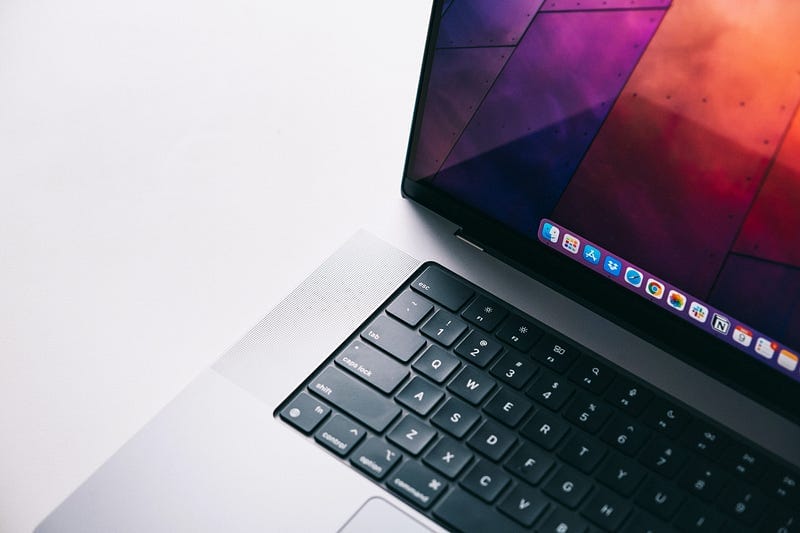Notion, the Perfect Place for Procrastination

Productivity is defined as ‘the state or quality of being productive’, and is something many of us strive for every day.
Whether we’re trying to study more, read more books or make more money, we can sometimes fall into the trap of fake productivity, that is, doing busywork rather than the work that moves the needle.
This is something that I have struggled with for most of my adult life…
Instead of actually going to the gym I watched exercise videos on YouTube.
Instead of writing university assignments I was watching videos on how to write assignments.
Instead of getting started, I watched videos on how to get started. I postponed the plunge.
And that’s where Notion comes in.
If you’ve not heard, Notion is a project management and note-taking platform that has grown considerably over the past few years, and now claims to have over 30 million users.
An incredibly flexible system, Notion can be used for revision timetables, meeting notes, company road maps and content calendars among other things.
However, this flexibility is what can cause problems — particularly if you’re like me and prone to distraction.
‘Productive’ Procrastination
Notion has a lot of options, so whether you plan to go hands on or watch tutorials, it is likely that you’ll need to spend time learning how to use it.
And you’re already starting to procrastinate.
But this isn’t your regular procrastination, this is a far more deadly type — ‘productive’ procrastination.
On the surface ‘productive’ procrastination sounds useful. Yet I would argue that it is far worse than regular procrastination.
Because you feel productive.
Feeling productive is much more dangerous because there is no incentive to get back to the real work, after all — you’re already working… right?
In the case of Notion, this can be spending hours creating the perfect revision timetable, content calendar or exercise regime — all the while never studying, writing or exercising.
Needle-Moving Procrastination
Productive procrastination can, in some situations, be useful. But only when you’ve made progress on the important work first.
This is the key difference between useful procrastination and ‘productive’ procrastination that is simply avoiding the work.
For example, let’s say you’re a student and looking to create a revision schedule for the next semester…
You open up Notion, search YouTube for revision schedule tutorials and begin tinkering. Before you know it you’ve spent 3 hours creating a fantastic Notion table, but you aren’t any closer to knowing the topic.
This is not effective, because you’re not taking a break from any work — you haven’t started the work — yet you feel as though you have.
To procrastinate effectively you have to procrastinate from something, starting the work is a requirement.
If we go back to our studying example, this would be identifying a topic to revise and studying before opening Notion.
This way when we open Notion to design our revision timetable it actually complements our work. If we sap our energy studying, then at least we used it to do the work that moves the needle.
If we design the revision timetable first, then we risk wasting our energy on superfluous fluff and have no energy for the critical work.
Productive procrastination has to complement or improve your work. If it doesn’t, you’re just procrastinating.
This doesn’t mean that our lives should revolve around work, but if the goal is to procrastinate productively, we must consider the effect of this procrastination.
It is also crucial to remember that taking breaks can improve our work, and could therefore be considered productive procrastination.
But how do we ensure that our procrastination is genuinely productive?
Aside from doing the most important work first, here are three ways to ensure progress towards your goals while minimising distractions.
1. Two Steps Forward, No Steps Back
The first step towards making progress is to identify the non-negotiable work and create separation between what we must do and what we can do.
To find out what moves the needle, ask yourself — what is my goal? Is it to get better grades, write more or lift more weight? Then, instead of going straight to Notion to design a schedule, consider the input that leads you towards your goal.
While it may seem obvious, we often get sidetracked and put too much weight on the planning and scheduling phase — what we can do.
It’s not the study schedule, content calendar or exercise regimen that moves the needle. It’s the revision questions, writing sessions or resistance training.
All the above are examples of inputs that can lead to the outputs you’re looking for. If your goal isn’t listed above, consider what input moves you towards your goal.
While planning and scheduling arehelpful, what is more important is starting the needle-moving work — sooner rather than later.
Side note — it is also crucial that the work we identify truly is the most important. It is not enough to identify a task, we need to identify the task. As Tim Ferris once said…
“Doing something unimportant well does not make it important.” — Tim Ferriss (The Four-Hour Work Week)
You can have a perfect revision schedule, but ultimately this is just a revision schedule. The studying itself is what moves the needle, and if we focus too much on the planning phase, we risk ending the year no closer to our goals.
Once we’ve identified our non-negotiable work, it’s time to stop distraction in its tracks.
2. The Devil on Your Shoulder
For many of us, it’s relatively easy to identify the work we should be doing, yet our to-do lists never end.
One potential reason for this could be the distraction-filled world we live in, with emails, texts and notifications waiting around every corner to pull us away from our most important work.
But if it’s our most important work, shouldn’t we treat it as such? Because what we pay attention to defines the person we become — should we be wasting it on unimportant busywork?
“What you pay attention to will define, for you, what reality is.” — Oliver Burkeman (Four Thousand Weeks)
If the task you’re working on is important to you, remind yourself why — list the reasons why you do what you do. Is it for yourself, your family, or your future children? Is it because of the money, or the freedom it brings?
The reasons are up to you, but write a list for yourself and refer to this list whenever you’re struggling for motivation. Better yet, set a reminder to check this list before you need to — and turn off the other notifications.
Set yourself a notification that supports your progress rather than detracting from it.
While you’re at it — set reminders to go back to work. Everyone is prone to distraction at some point and we can sometimes wander down a path without even realising it.
If this is you, consider setting periodic reminders to get back to work.
Depending on how distractible you are, this could be every 30 minutes or every two hours. But it helps to remind yourself what you should be working on (and no, Amazon’s Black Friday sale is not a priority).
Side note — A fantastic piece of software that has helped me with this is Cold Turkey Blocker — a simple way to block websites, apps or even the entire internet. While Cold Turkey is paid software (a one time fee of £29), it helps you focus and free up your time to do what really matters and I highly recommend giving it a try.
Ultimately, the purpose of setting reminders is to bring your attention to the consequences of your procrastination.
Procrastination not only impacts your work, it impacts your life. If the work is important enough it will need doing eventually, so putting it off will only bleed into family time. Time you will never get back.
Reminders reveal in detail how often you procrastinate, and nudge you back towards your most important task.
3. Uncomfortable Adaptation
One common reason people procrastinate is that the most important task is often the most difficult one.
You can probably see where I’m going with this but consider you are halfway through the semester and about to start your first assignment.
As you’re only just starting, the amount of work you need to do seems huge — an overwhelming mountain you have to climb. Conversely, doing the housework now seems irresistibly appealing, and vacuuming is now your favourite hobby.
This is because the critically important task seems to be the most difficult. But being busy does not mean you are productive, and it does not mean you’re moving towards your goals.
“Being busy is most often used as a guise for avoiding the few critically important but uncomfortable actions.” — Tim Ferriss (The Four-Hour Work Week)
Are you creating the Notion template to support your progress towards your goal, or are you being busy to hide from the uncomfortable but necessary actions you need to take?
Conclusion
While Notion is a fantastic piece of software, it can be used for procrastination — and the most dangerous ‘productive’ procrastination.
But the problem isn’t with Notion itself, it’s the mindset that it instils.
The mindset that we are being productive by creating unnecessary revision schedules and workout trackers all the while putting off studying and exercising — and never feeling the need to actually stop procrastinating.
Remember that if the work is truly your most important, then it is worth your time, it is worth the temporary discomfort you feel when starting a new project — because this is what creates learning, growth and long-term happiness.
Thank You
If you made it this far thank you — I appreciate you taking the time to read my work and sincerely hope you enjoyed it. If you would like to continue reading, I’ve included a few of my recent articles from my website below. I’d love it if you could check them out!
Thanks again.
Rob
The Best Free Chrome Extensions for Students
The Problem with Productivity: Lessons Learned from ‘Four Thousand Weeks’ by Oliver Burkeman
